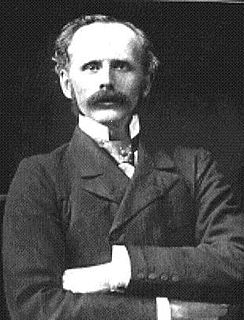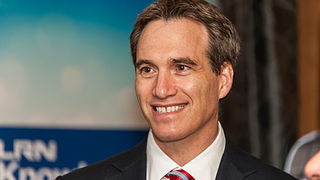A Quote by John C. Calhoun
I am impressed with the belief that our naval force ought not to cost more in proportion than the British. In some things they may have the advantage, but we will be found to have equally great in others.
Related Quotes
It is a fool only, and not the philosopher, nor even the prudent man, that will live as if there were no God... Were a man impressed as fully and strongly as he ought to be with the belief of a God, his moral life would be regulated by the force of belief; he would stand in awe of God and of himself, and would not do the thing that could not be concealed from either.
I am for relying for internal defense on our militia solely till actual invasion, and for such a naval force only as may protect our coasts and harbors from such depredations as we have experienced; and not for a standing army in time of peace which may overawe the public sentiment; nor for a navy which, by its own expenses and the eternal wars in which it will implicate us, will grind us with public burthens and sink us under them.
It is becoming plain that our liberal regime of equality and personal freedom depends, more than most theorists of liberalism have been willing to admit, on the existence and support of certain social assumptions and practices: the belief that each and every human being possesses great and inherent value, the willingness to respect the rights of others even at the cost of some disadvantages to one's self, the ability to defer some immediate benefits for the sake of long-range goals, and a regard for reason-giving and civility in public discourse.
As Attraction is stronger in small Magnets than in great ones in proportion to their Bulk, and Gravity is greater in the Surfaces of small Planets than in those of great ones in proportion to their bulk, and small Bodies are agitated much more by electric attraction than great ones; so the smallness of the Rays of Light may contribute very much to the power of the Agent by which they are refracted.
If our well-being depends upon the interaction between events in our brains and events in the world, and there are better and worse ways to secure it, then some cultures will tend to produce lives that are more worth living than others; some political persuasions will be more enlightened than others; and some world views will be mistaken in ways that cause needless human misery.
And having thoughtlessly polluted our streams and rivers, we have seen in recent years a rapidly growing market for bottled drinking water. I am sure that some will say that a rapidly growing market for water is "good for the economy," and most of us are still affluent enough to pay the cost. Nevertheless, it is a considerable cost that we are now paying for drinkable water, which we once had in plentiful supply at little cost or none at all. And the increasing of the cost suggests that the time may come when the cost will be unaffordable.
For all great innovations, someone took a risk. They risked capital; they risked their energy; they risked their opportunity cost; and more important, they risked failure. We can't innovate without the belief that we can succeed, the confidence that others will be there to help us on the journey, and the security that we will not be punished if we fail to reach our goal. A fast-moving world demands innovation for long-term success.
More and more businesses are seeing the potential of a more sustainable business model, driven both by the firm belief that business can be a force for good and by the realization that the cost of inaction often exceeds the cost of action - notably when it comes to the growing threat of climate change and water scarcity.
Spirituality emerged as a fundamental guidepost in Wholeheartedness. Not religiosity but the deeply held belief that we are inextricably connected to one another by a force greater than ourselves--a force grounded in love and compassion. For some of us that's God, for others it's nature, art, or even human soulfulness. I believe that owning our worthiness is the act of acknowledging that we are sacred. Perhaps embracing vulnerability and overcoming numbing is ultimately about the care and feeding of our spirits.
The more I think of a people calmly developing, in regions excluded from our sight and deemed uninhabitable by our sages, powers surpassing our most disciplined modes of force, and virtues to which our life, social and political, becomes antagonistic in proportion as our civilisation advances - the more devoutly I pray that ages may yet elapse before there emerge into sunlight our inevitable destroyers.












































